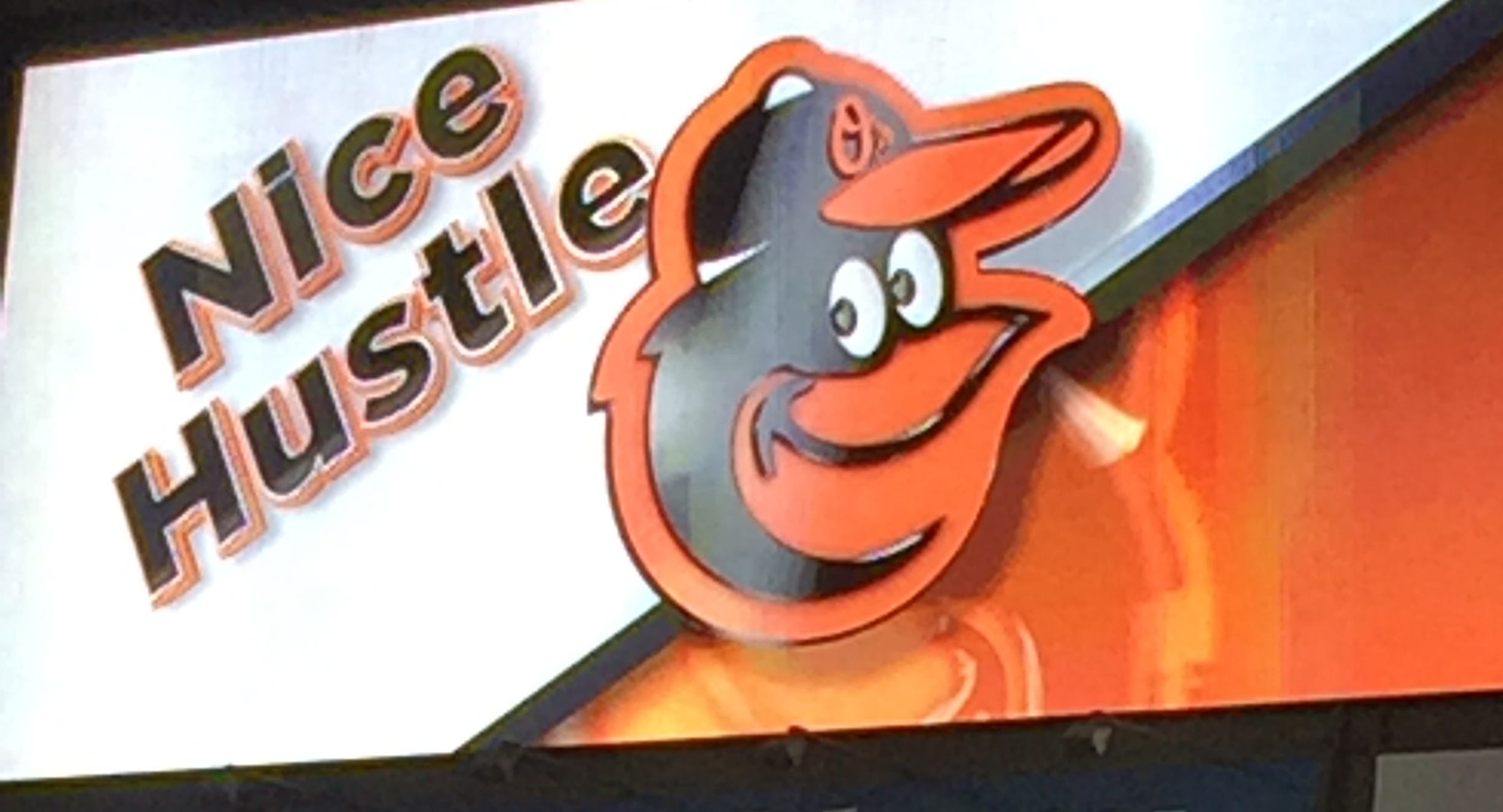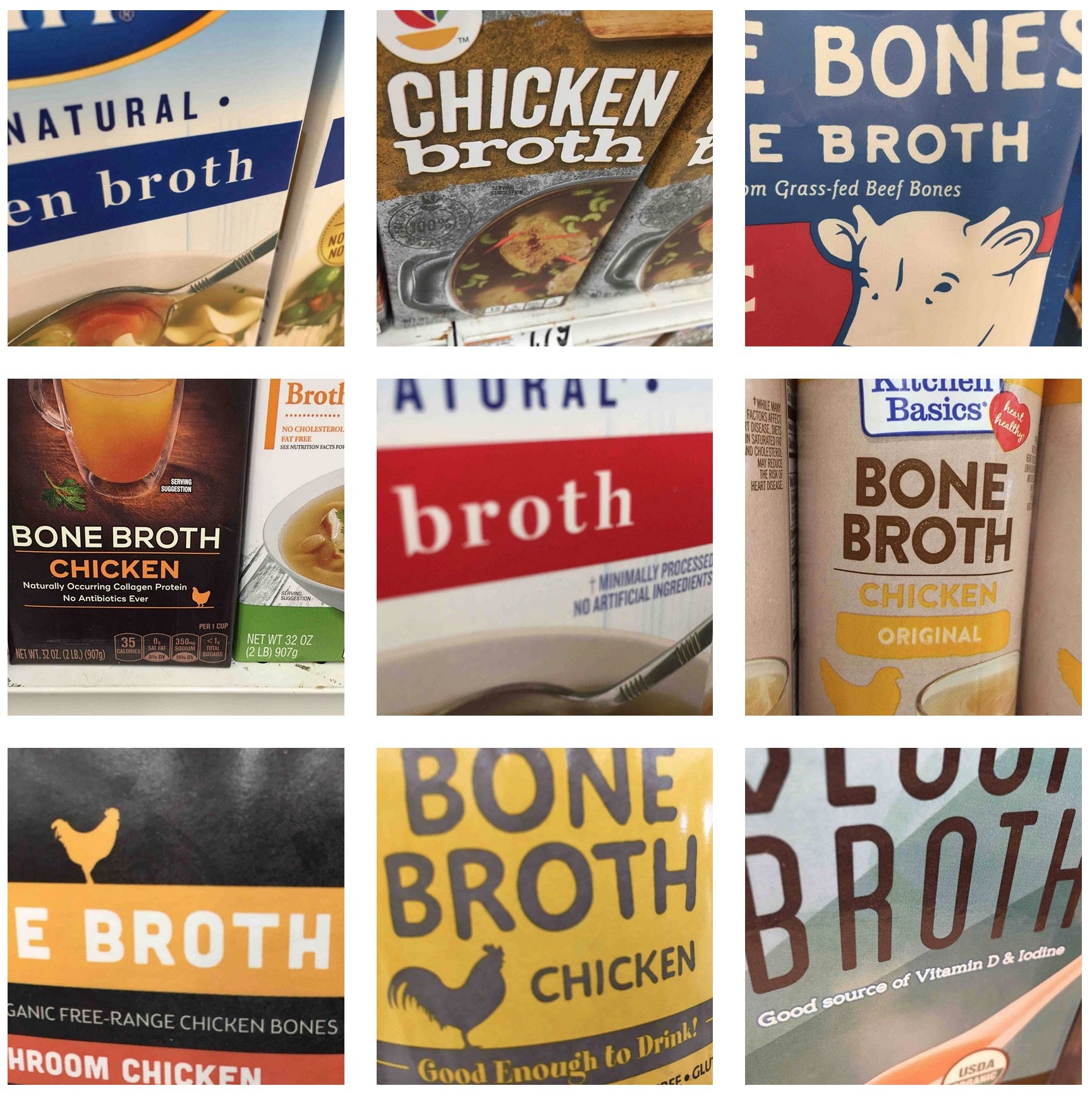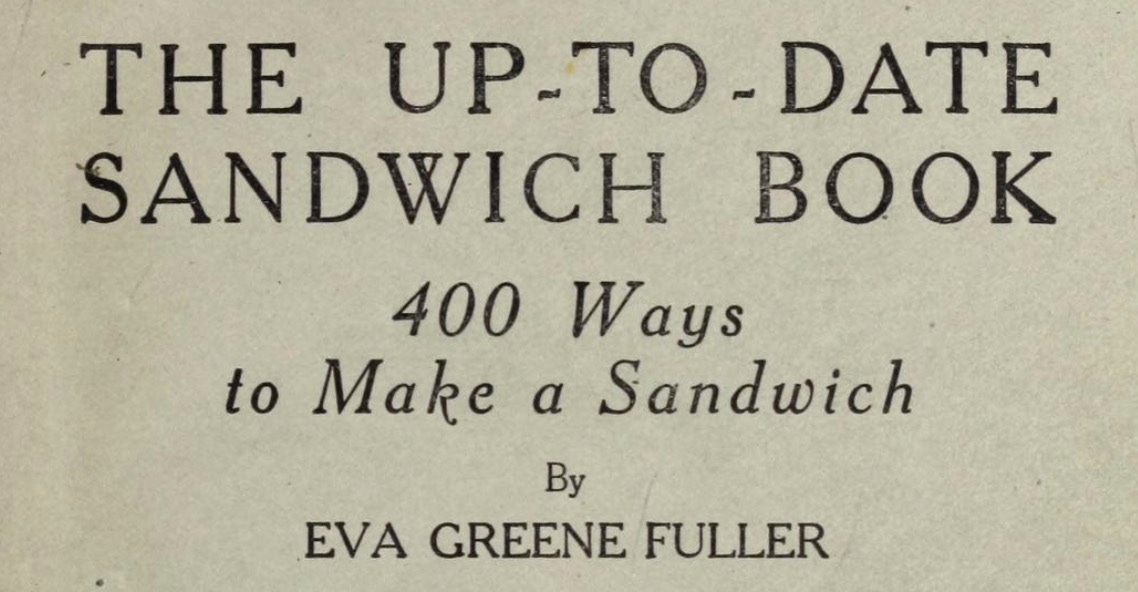Hmm Weekly for December 10, 2019
What is a Tuesday really, we're all friends here

Another Week, Another Hmm Weekly
GOOD MORNING! This is a transmission of HMM WEEKLY, the successor publication to HMM DAILY, distributed via SUBSTACK, a newsletter delivery and reading platform. We are currently posting items FREE TO ALL, in gratitude to those of you who previously financially supported HMM DAILY or those of you who merely expressed interest in it. Eventually, as the days shorten and our weekly publication grows longer, we will set about creating additional things that will be viewable exclusively to financial supporters of HMM WEEKLY. We hope you will accompany us on our happy success journey.
If someone has passed along this message, it’s easy to sign up for yourself.
We urge you to spread the word about HMM WEEKLY, and we thank you for reading.

GIVING DEP’T
By Heather Joslyn
FOR NEARLY 18 years, I worked as a reporter covering American charities. I took a job outside of journalism earlier this year, and this is the first holiday giving season in a long time that I haven’t needed to maintain professional objectivity regarding nonprofits and how they operate.
So now, I get to say what I really think!
I’m getting the same avalanche of emails and targeted ads as the rest of you. And I see a lot of you in my Facebook news feed are raising money on behalf of your favorite causes (lots of animal lovers out there, BTW, just sayin’). Good for you for giving back.
Here are some things I learned about charitable giving during my time observing that field. Food for thought:
1. You may be tempted to give a little here and a little there. It’s better for everyone if you pick one, or two, or a small manageable number of worthy organizations and give as much as you can. Once you give to a charity, you are in their database, and they will spend money and staff resources keeping track of you, perhaps sending you snail mail appeals for the next few years, trying to get you to increase your giving. When you give a tiny amount to a charity that catches your eye, it’s not just giving money. It’s starting a relationship. Think about which charities you really want to start a relationship with. Don’t toy with those you’re never going to date again.
2. Another reason to focus your giving: There is enormous need in your community, in your country, in the world—and there are too many charities. There are too many charities that do the same thing and fight over the same pool of donors. More of them need to merge. This is one of the dirty little secrets of the charity world: There need to be fewer charities, doing more and better work. Support only the ones you believe in most.
3. Though none of them are perfect in the criteria they use, there are organizations that vet charities and can give you an idea of which ones are most likely to make good use of your money. Check out:
Charity Navigator: https://www.charitynavigator.org/
Better Business Bureau Wise Giving Alliance: http://www.give.org/
Candid, which is not a watchdog organization but has a treasure trove of data about charities: https://candid.org/
Look also at a charity’s web site. If the organization’s leaders believe in accountability and transparency—and they should, given that their nonprofit status itself is quite literally a subsidy by you, the American taxpayer—the site should include financial statements and/or the IRS Form 990, the informational tax form charities that raise more than $25,000 annually are required to file.
4. When I was covering charities, the type of charities I got asked about most by my friends and family are those that serve military veterans and families.
Now it can be told. In addition to the good ol’ USO (https://www.uso.org/), I have been most impressed by these two, and think they are well worthy of support:
TAPS:
Offers support services and fellowship to grieving family members, friends, and battle buddies of deceased servicemembers. https://www.taps.org/
Fisher House Foundation:
Raises money to build home-like lodging for families of patients at VA hospitals around the country (like Ronald McDonald Houses, but specifically for military families). https://fisherhouse.org/
5. Beware of any charity whose main work is “to spread awareness of [fill in the blank].” It’s 2019. We’re all pretty freakin’ aware already.
Heather Joslyn is an editor and writer who lives in Baltimore, Maryland, the Greatest City in America.

SPORTS DEP'T.
Dylan Unplugged
SPORTS IS NOT the world, anyone knows, and when your favorite sports team does something good, only rarely can you grant it any greater significance. But sports exists in the world, and so the bad things that happen to your favorite sports can and often enough do mean something bad in a larger sense.
Last week, the Baltimore Orioles traded away Dylan Bundy, the pitcher who led the team with 161 2/3 innings and 30 games started last season, for a collection of minor-league pitchers. Those pitchers will not pitch 161 2/3 major-league innings or start 30 major-league games among them this coming season, and they seem unlikely, collectively, to ever reach either of those figures in a season. Possibly in their entire careers, if they have careers.
Dylan Bundy is not a very good pitcher, but that was what made the deal so appalling. The Orioles were a bad team last season and the season before that—a very, very bad team—and they are by understanding and declaration supposed to be in the process of trying to fix that. If they had been in possession of a genuinely good veteran starting pitcher, trading that pitcher away would have made sense: good teams (or teams that plan to be good) need good pitchers more than bad teams do; a good pitcher, moreover, may find more meaning and fulfillment by pitching high-stakes games while chasing the pennant than by toiling away for a bad team. In return for such a pitcher, traditionally, the team that is good right now is usually willing to give back a few younger players, maybe even pitchers, who are not yet good but may be good in the future. It's depressing, but it can be said to meet everyone's needs.
The Orioles did not give up Dylan Bundy for the sake of that kind of trade. Nor were they making that kind of trade two days before, when they gave up Jonathan Villar—the middle infielder who had led the team in games played, hits, runs, and stolen bases—for a lone 23-year-old pitcher from the low minor leagues. Baltimore had put Villar through waivers, to trade him or lose him outright, because, under the Major League Baseball's collective bargaining agreement, he had acquired enough service time to get paid the market rate for his abilities in salary arbitration, and they didn't want to pay. They were dumping talent and payroll for the sake of dumping talent and payroll, because that is what their general manager, Mike Elias, has set out to do with the team.
Officially, Elias is supposed to be "rebuilding" the Orioles. When a team stops winning, as the Orioles stopped winning three years ago, the theory says it's time to abandon hope, cut expenses, move out the pricey veteran players, and...well, it's what comes next that has become the problem, lately. Historically, the general manager's job was, as soon as the team hit rock bottom, to start climbing back up—to acquire those batches of younger, cheaper, and more numerous players and send them out onto the field to start learning to play and win games against major-league competition, with the help of some well-chosen, affordable-but-useful veterans to fill the obvious holes on the roster. Somewhere behind them in the minor leagues, thanks to the high draft pick that comes to make up for having played a truly terrible season, there might be a real budding star developing, to join the steadily improving team a few years down the road.
But in this still-young century of demonstrative hypercapitalism, sports franchises are not discussed as teams of players trying to win games, but as portfolios of assets to be managed. And under asset-management rules, it's considered irrational to try to make a bad team into a mediocre-but-competitive team. Why would you spend money and effort building a fourth-place team that might get lucky and chase third place, when you can aim for last place again? Elias comes from the Houston Astros, who made their mark on baseball by losing 106, 107, and then 111 games from 2011 to 2013, wallowing at the bottom of the standings for years as they (as the story goes) developed new analytic techniques and overhauled the entire science of player development, while collecting multiple high draft picks, so they could rocket all the way to the top, winning a World Series in 2017 and positioning themselves to dominate the sport for a generation.
Here it's worth noting that so far that one title is Houston's only title; and that among the innovations that apparently helped them win in 2017 was an illegal camera system tracking other team's pitching signs, so that a clubhouse flunky could whack a trashcan with a bat to make noise to signal to the Astros hitters what pitch was coming; and that two years after that, in the World Series just past, an invincible-looking Houston squad got thoroughly beaten by a Washington Nationals franchise that had spent the past decade, during Houston's fabled teardown and buildup, merely tooling and retooling its roster in an old-fashioned, open-ended, now ultimately successful effort to try to keep finding ways to win more games than it lost. And that, in fact, part of the reason that Houston is so celebrated is that there are very few other examples of teams that have achieved extended baseball success by pursuing extended baseball failure.
Nevertheless, the Houston plan is the Baltimore plan—at least the part of it where the team tries to lose more than 100 games for a third season in a row. The real innovation, which has made the tear-down-and-stay-down approach so popular across multiple sports, is that it frees Elias from having to demonstrate that he has any real skills as a baseball general manager: the ability to find players other teams have missed, or to bring out unexpected skills in the players he has, or to get the better of a competing GM in a head-to-head trade. If losing lots of games is the medium-term goal, he can't be blamed for failing to get good players; in fact, he can be celebrated for it.
Complaining about this is not simply wishful thinking. The Orioles lost 108 games last year, but they were not a hopeless team. They were a team with a half-decent batting lineup and a pitching staff that had been neglected to the point of actual sabotage. Given license not to win in 2019, Elias was so stingy about acquiring pitching talent that the Orioles could not come up with a healthy starting pitcher for the second game of the season. With 160 games still to play, they gave up and handed it over to the bullpen.
What that meant, going into 2020, was that with a modicum of effort and spending—in a labor market where players’ prices are depressed by all the other teams that are also trying to lose, or are at least refusing to spend the money to win—Elias could have sharply improved the Orioles from last year to this one. With a couple of new, merely adequate starting pitchers, a new outfielder, and the willingness to keep Bundy and Villar around (and with the courage to give up on playing Chris Davis, the $23-million-per-year slugger who suddenly and completely lost all ability to see and hit baseballs), there was no reason the 108-loss team couldn't have been a 90-loss team this year.
Instead, they didn't even try. This is a scam, and it is the scam that runs through much of everyday life. Someone decides to give you less of what you want, or none of it at all, in the name of some abstract efficiency or austerity or financial discipline. Somewhere, for someone's purposes, it is understood to be the right thing to do.
Your own purposes, the original purposes, are sentimental and primitive. You may think that a professional sports team exists to try to compete against other teams, and possibly win. You may think that a local newspaper exists to report news about events in a particular place to the people who live there. You may think that recorded music exists for you to listen to, when you want to hear it, indefinitely.
You are not wrong to think these things, but being right has no monetary value. The people with the money have agreed to put the value elsewhere. The Baltimore Orioles have decided that the value of winning baseball games in the present day is zero, even as the team keeps on charging major-league ticket prices and collecting major-league television fees. The Orioles fans lose another year of their lives—and the remaining Orioles players lose another year of their careers—with no hope of winning, and caring about that waste is waved away as the sunk-cost fallacy.
Yet all of life is a sunk cost. Dylan Bundy has not been good for a while now, but he was good for a while when he was very young and his arm was undamaged, and before that he was the No. 4 overall pick in the baseball draft. Getting rid of Dylan Bundy means the Orioles are wasting 30 starts entirely this year, so that maybe they will have a chance to get another Dylan Bundy.
VISUAL CONSCIOUSNESS DEP’T.
Broth!

YOU CAN FOLLOW hmmweeklygram on Instagram.

HERE IS A PHOTOGRAPH OF THE SKY
Spam Filter Letters to the Awl
WHILE WE MULL over what to serialize next, here's yet another installment of Spam Filter Letters to the Awl, from the 80,000-word collection of dummy-text cover letters I wrote to make sure that when I emailed that site a photograph of the sky, the filters would allow it to go through.
9/29/14
Subject: Another subject line
To: Awl notes
for the same subject as ever, the email of nothingness, the word-padding, the vamping, the keyboard jabberation, the blather to express my uniqueness and meaningfulness as a human correspondent. Here we go again. Probably long enough soon, maybe after another clause or two? Maybe a whole nother sentence might do it. Here is a photo of the sky to accompany the review in the system.
9/30/14
Subject: Conventions say a subject line goes here
To: Awl notes
The subject line tells humans what this very genuine human-to-human communication is "about," broadly speaking. Then down in this box below, the humans put sequences of words, of varying length and structure. This is a very normal human way of transferring information--for instance, the information that the review is in the system and a photograph of the sky is attached.
10/1/14
Subject: a very human subject line
To: Awl notes
Now an even more human sentence--ever so human, and oh so sentence-y! With signals of affect, even. A few more sentences. Sentence fragments, the English teacher would say. Imperfection also marking humanity. After a short one, a longer one, with various subordinate clauses, signaling that a human capacity for language has been set to work creating them.Here is the photo and the draft is in the system.
10/2/14
Subject: Ice cream
To: Awl notes
Who doesn't like ice cream? It's good stuff, right? It's weird to me when people have burning absolutist favorites about ice cream flavors, because it all really should depend on your mood. Different flavors taste different ways, and liking them is not a zero-sum game. That's one reason to keep on eating ice cream: so you can eat the different flavors at different times.
If I had to choose though, I'd probably choose pistachio.
Here's a picture of the sky, and the review is in the system.
10/3/14
Subject: extra business
To: Awl notes
How do we do corrections? Over the course of a summer and fall of plant growth, it has come to my attention that what I took for paulownia in this review-- http://www.theawl.com/2014/07/new-york-city-july-14-2014 -- is in fact velvet-leaf.
Moreover it turns out that what it shares the planting bed with is the hallucinogenic and poisonous jimsonweed, which is currently scattering its psychotropic seeds here and there.
At any rate, today's review is in and here is a picture of the sky.
10/6/14
Subject: haste
To: Awl notes
I have nothing germane to offer in the way of vamping, just the fact that I have to go pick up the older child from school and then pick up the younger child to school and then take them both to their swimming lessons, which will unfold in the reverse order of that, i.e., youngest, then oldest, till the whole afternoon has been consumed. Anyway the review is in the system and here is the sky photo.
RECIPES DEP’T.

WE PRESENT A selection of recipes for ancient but reproducible sandwiches, found in The Up-To-Date Sandwich Book: 400 Ways to Make a Sandwich, by Eva Greene Fuller; 1909; McClurg and co, Chicago, now in the public domain for the delectation of all.
WESTPHALIAN HAM SANDWICH
Between thin slices of lightly buttered rye bread, place thin slices of Westphalian ham; add a dash of mustard, and garnish top with a pickle.
AUTOMOBILE SANDWICH
Run through the meat chopper two pounds of cold boiled ham, half a pound of walnut meats, and four dill pickles. Mix with a little French mustard, and place between slices of lightly buttered bread.
STAG SANDWICH
Run cold boiled ham and dill pickle through the meat chopper, add a little French mustard, and spread on thin slices of lightly buttered bread. Cover with another slices.
VEAL SANDWICH
Grind through meat chopper the desired amount. To one cup of chopped meat add one tablespoonful of vinegar, one-half teaspoonful of mustard, one-half of a small onion chopped fine. Salt and pepper to taste. Mix to a paste with mayonnaise dressing, and place between thin slices of lightly buttered white bread. Garnish with a pickle.
If you make one of these sandwiches, before you eat it, please send a picture to hmmweekly@substack.com
HMM WEEKLY IS written by Tom Scocca, editor, and Joe MacLeod, creative director.
If you enjoy Hmm Weekly, please let a friend know about it, and if you're reading this because someone forwarded it to you, go ahead and sign up for a copy of your own right now.
Thanks for reading, and any time you want, you can email us at hmmweekly@substack.com.




